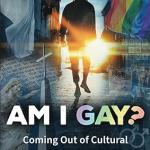 Philip Yancey has a new book coming out Vanishing Grace: What Ever Happened to the Good News?. This book tackles a topic that is down to earth real in my world and makes an interesting complement to Tuesday’s post Coming Soon … “The Talk”?. In his NY Times opinion piece David Barash argues that science has undermined any rational basis for faith in God and describes a no nonsense approach that makes this clear to his students. He can get away with this because his view is no longer an uncommon sentiment in our western world. Many (most?) of his peers, while not so abrupt, will agree with his conclusion. In Western societies many go a step further and see Christian faith as a net negative in society. Frankly, Christian faith is losing traction in society. It has lost traction in Europe and Canada where far fewer than half find religion a positive influence. And it will likely continue to lose traction in the US.
Philip Yancey has a new book coming out Vanishing Grace: What Ever Happened to the Good News?. This book tackles a topic that is down to earth real in my world and makes an interesting complement to Tuesday’s post Coming Soon … “The Talk”?. In his NY Times opinion piece David Barash argues that science has undermined any rational basis for faith in God and describes a no nonsense approach that makes this clear to his students. He can get away with this because his view is no longer an uncommon sentiment in our western world. Many (most?) of his peers, while not so abrupt, will agree with his conclusion. In Western societies many go a step further and see Christian faith as a net negative in society. Frankly, Christian faith is losing traction in society. It has lost traction in Europe and Canada where far fewer than half find religion a positive influence. And it will likely continue to lose traction in the US.
This is a situation we should worry about. We don’t need hand-wringing and a persecution complex. We do need to explore the reasons for the current state of affairs and then appropriate responses. This is where Yancey’s book digs in. From the Amazon synopsis:
Yancey explores what may have contributed to hostility toward Evangelicals, especially in their mixing of faith and politics instead of embracing more grace-filled ways of presenting the gospel. He offers illuminating stories of how faith can be expressed in ways that disarm even the most cynical critics. Then he explores what is Good News and what is worth preserving in a culture that thinks it has rejected Christian faith.
The approach non-Christians take to Christian faith comes in a number of different flavors – two of the more common can be referred to a pre-Christian or post-Christian, an insight Yancey picked up from Daniel Hill:
“Pre-Christians” seemed open and receptive when the topic of religion came up. They had no real hostility and could imagine themselves connected with a church some day. In contrast, “post-Christians” harbored bad feelings. Some carried memories of past wounds … Others had simply absorbed the media’s negative stereotype of rabid fundamentalists and scandal-prone television evangelists. (p. 18)
Most of the people I interact with on a day-to-day basis are post Christian. Some grew up in the church and had bad experiences, some just drifted away, but many have simply absorbed the messages floating around them. A not insignificant number have had bad interactions with Christians unrelated to the church directly, or to their upbringing. Here is the real issue, and the one we must wrestle with. The negative stereotype portrayed by the media doesn’t tell the whole story, but it contains enough truth to be credible. Should we fault people for believing it?
To take one example, read the comments on a controversial topic at your favorite Christian site … well perhaps not your favorite site, but at many Christian sites. At times Christians behaving badly seems the rule of the day. We moderate comments carefully for just this reason. Yancey reflects on an experience following a post on his Facebook page of quote from the late Andy Rooney … the quote raised the ire of many and a firestorm of comments ensued, complete with flame-throwers. Some found it necessary to attack Rooney, dismissing him as a lightweight thinker, others attacked Yancey himself for posting the quote. Yancey writes:
Would I want to eat dinner with the flame-throwers who posted comments on my site? I replied – and here is a recurring theme of this book – that the issue is not whether I agree with someone but rather how I treat someone with whom I profoundly disagree. We Christians are called to use the “weapons of grace,” which means treating even our opponents with love and respect. (p. 26)
Even when commenting on blogs.
Everyone is human, and everyone has a story. We would be far better off listening to their stories and treating them with respect. This can include vigorous debate and disagreement – but should never lose sight of the fact that the other is human as well. Yancey suggests a prayer, derived from Henri Nouwen, “Let me see them as thirsty people, and teach me how best to present the Living Water.“
I will dig into more of Yancey’s book over the next month or so mixed in with other topics.
Do you think America is becoming increasingly post-Christian?
What responses do you get from non-Christians in your situation?
If you would like to contact me directly you may do so at rjs4mail [at] att.net
If interested you can subscribe to a full text feed of my posts at Musings on Science and Theology.















